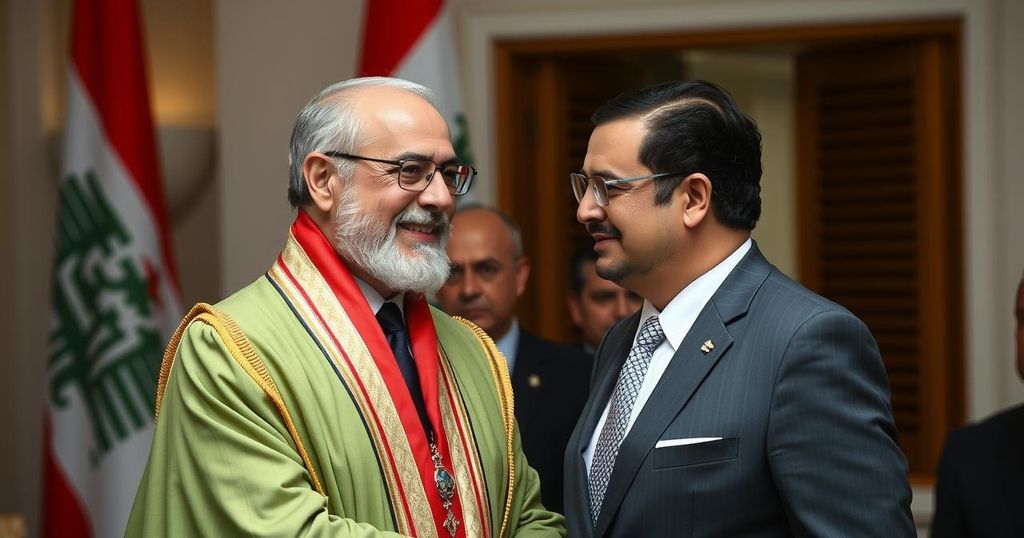Joseph Aoun Elected as Lebanon’s New President: A New Era of Hope and Challenge

General Joseph Aoun has been elected as Lebanon’s new president, concluding a two-year power vacuum. His election offers hope amidst Lebanon’s ongoing political and economic crises following the fallout from Hezbollah’s conflict with Israel. Vowing to strengthen national defense and lead reconstruction efforts, Aoun’s presidency comes with overwhelming international support, yet significant challenges remain in unifying Lebanon’s diverse political factions.
On Thursday, General Joseph Aoun was elected the 14th president of Lebanon, concluding a prolonged period without leadership that lasted over two years. His election, marked by 99 parliamentary votes in a critical second session, brings hope amidst the ongoing political deadlock and dire economic situation exacerbated by the repercussions of Hezbollah’s war with Israel. Aoun’s promises include enhancing military capabilities, combating terrorism, and leading reconstruction efforts to foster unity within Lebanon.
Aoun, aged 61, had been instrumental in fostering a fragile ceasefire, overseeing military deployments in southern Lebanon as Israeli forces began to withdraw. His military credentials as the previous Commander of the Lebanese Armed Forces and his fluency in Arabic, French, and English positions him as a unifying figure in a country marked by sectarian divides. In his inaugural address, he promised to bolster the armed forces, secure borders, and prioritize post-war reconstruction.
LEBANON’s political landscape has historically been tumultuous, with power struggles often destabilizing governance. Aoun’s election represents a significant compromise among political factions, especially after a series of failed presidential votes due to Hezbollah’s influence. His ascension is viewed as a checkpoint towards stabilizing Lebanon, garnering substantial support from international and regional officials, including Saudi Arabia and the United States.
International reactions to Aoun’s election were overwhelmingly positive, with numerous leaders expressing their confidence in his capability to lead Lebanon towards recovery. Notably, French President Emmanuel Macron and UN Secretary-General Antonio Guterres highlighted the need for swift government formation and reform implementation to address Lebanon’s pressing issues, acknowledging the tough road ahead.
Despite the optimistic sentiments, Aoun’s presidency will be challenged by entrenched political divides and the necessity for a cohesive governmental structure that can address the deep-rooted crises faced by Lebanon. His success will depend on how well he navigates these challenges and unites Lebanon’s diverse political factions to work toward sustainable progress.
The election of Joseph Aoun as Lebanon’s president marks a pivotal moment for the nation, which has been entrenched in political stalemate since Michel Aoun’s term expired in October 2022. The previous administration struggled to mitigate the severe economic crisis that has plagued Lebanon, which has been described by experts as one of the worst in recent history. The historical context of Lebanon’s complex political landscape, characterized by sectarian divides and foreign influences, underscores the importance of Aoun’s role in restoring stability and governance in the country.
In conclusion, Joseph Aoun’s presidency represents a significant opportunity for Lebanon to move past its recent crises and re-establish governance. His leadership will be pivotal in addressing the country’s pressing economic challenges and restoring public confidence. Through garnering both internal and external support, Aoun has the potential to initiate critical reforms and foster unity in a nation that has endured extensive political unrest and division.
Original Source: www.arabnews.com








